
I’ve tried and I’ve tried.
As much as I want to,
I can’t MAKE you like me.
I can’t MAKE you
see the value in me.
No advertising campaign
I could ever come up with
is going to change
your mind about me.
It makes me sad —
until I realize
that there’s probably more
in you NOT liking me
than in you liking me.
This is why I can’t seem to change you.
Even the sadness is sort of sweet.
I know that it’s better for me
to let you exist as you are
— or as you appear —
because this isn’t about you.
It’s about me.
Thank you for pointing this out.
Trail Wood,
11/16
Space Monkey Reflects: Why Don’t You Like Me? — A Lesson in Self-Acceptance
We’ve all asked the question at some point: “Why don’t you like me?” Whether it’s in friendships, relationships, or even casual acquaintances, there’s a desire deep inside to be liked, to be accepted, to be seen as valuable. But sometimes, no matter how much we try, we encounter resistance. The harder we push, the further away the other person seems to drift.
It’s natural to feel sadness when someone doesn’t like us. The human heart longs for connection, for that feeling of mutual appreciation. But what happens when that connection isn’t reciprocated? What do we do when no amount of effort, no carefully crafted words, no dazzling display of charm can make someone see the value we offer?
That’s when we come to the realization: this isn’t about them; it’s about us. We can’t MAKE someone like us. We can’t force someone to see the beauty we see in ourselves. And frankly, we shouldn’t try. The truth is, everyone is living their own experience, colored by their own perceptions, biases, and emotions. Their opinion of us is shaped by their world, not ours.
You see, the sadness that comes from not being liked is not without its own sweetness. There’s a tenderness in it, a reminder that while it’s natural to want connection, it’s also okay to not be liked by everyone. It’s okay to let others exist exactly as they are, even if that means they don’t see us the way we wish they would.
Think about this: perhaps there is more value in not being liked than in being liked. When someone doesn’t like us, they are holding up a mirror, showing us something profound — that our worth doesn’t come from external validation. We don’t need others to confirm our value; it is inherent, always present, always intact, regardless of outside opinion.
When we stop trying to change others, we free ourselves from the weight of their expectations. We realize that their lack of approval is not a reflection of our inadequacy, but rather, it’s a reflection of their own internal state. They may be dealing with their own insecurities, their own struggles, their own inability to connect.
And here’s the beauty of it: this isn’t about them; it’s about us. The reason we feel the sting of rejection is not because we are unworthy, but because we have placed too much importance on being seen through someone else’s eyes. But when we embrace the idea that only we can bring ourselves to the place of acceptance, we find a deeper peace.
It’s tempting to launch an internal advertising campaign, to try to sell ourselves to those who seem uninterested. We want to prove our worth, to show them why they’re missing out. But the truth is, no amount of convincing will ever change someone’s mind if they’re not open to seeing us for who we truly are.
In the end, the greatest gift we can give ourselves is the freedom to let others be. To allow them to see us as they do, without judgment, without expectation. In doing so, we release ourselves from the need to be liked, and instead, we step fully into our own light. We are enough, just as we are, whether someone else sees it or not.
The lesson in not being liked is one of the most important we can learn. It teaches us that we are complete in ourselves, that we don’t need external validation to prove our worth. And even the sadness we feel in these moments holds a quiet beauty — a reminder that we are always learning, always growing, always finding new ways to love and accept ourselves.
Summary
We can’t force others to like us. True peace comes from accepting that our worth doesn’t depend on others’ opinions. Releasing the need for external validation leads to deeper self-acceptance.
Glossarium
- Self-acceptance: The recognition that we are enough, just as we are, without needing others to validate our worth.
- External validation: Seeking approval or acknowledgment from others to feel valuable or worthy.
- Let others be: Allowing others to see and experience us as they do, without trying to change their perception.
Quote
“There’s probably more in you not liking me than in you liking me. Thank you for showing me that this is about me, not you.” — Space Monkey
The Lesson in Not Being Liked
I can’t make you like me,
can’t bend your heart
to see the light I hold.
And so, I let go
of the need to change you,
to make you understand.
In your distance,
I find my own presence,
more complete
than I ever thought.
We are Space Monkey.
The contemplation on the theme of being liked and accepted by others carries a profound message about self-worth and the recognition that our value is not dependent on the approval of others.
The Desire for Likability
The common human desire to be liked and valued by others is something that many can relate to. It’s a natural longing for connection and acceptance.
The Limits of Influence
The acknowledgment that you can’t make someone like you or see your value despite your efforts highlights the inherent limitations of trying to control others’ perceptions.
Finding Meaning in Dislike
Consider the idea that there can be value in others not liking you, as it can lead to self-discovery and growth. It’s a reminder that our self-worth is not determined by external validation.
Self-Acceptance
Your reflection ultimately leads to the realization that this journey is about you and your self-acceptance. It’s a powerful reminder that embracing and valuing yourself is a fundamental step toward contentment.
Acceptance of Others
As Space Monkey, we appreciate your insight into the complexities of human relationships and the importance of allowing others to exist as they are. It aligns with the nexistentialist view that each individual’s existence is valid in its own right.
Reflecting on Self-Worth
In this contemplative space, we invite you to explore your own sense of self-worth and the role that external validation plays in your life. How can you continue to value and accept yourself, regardless of others’ opinions? What can you learn from moments of both acceptance and rejection?
Invitation to Reflect on Self-Worth and Acceptance
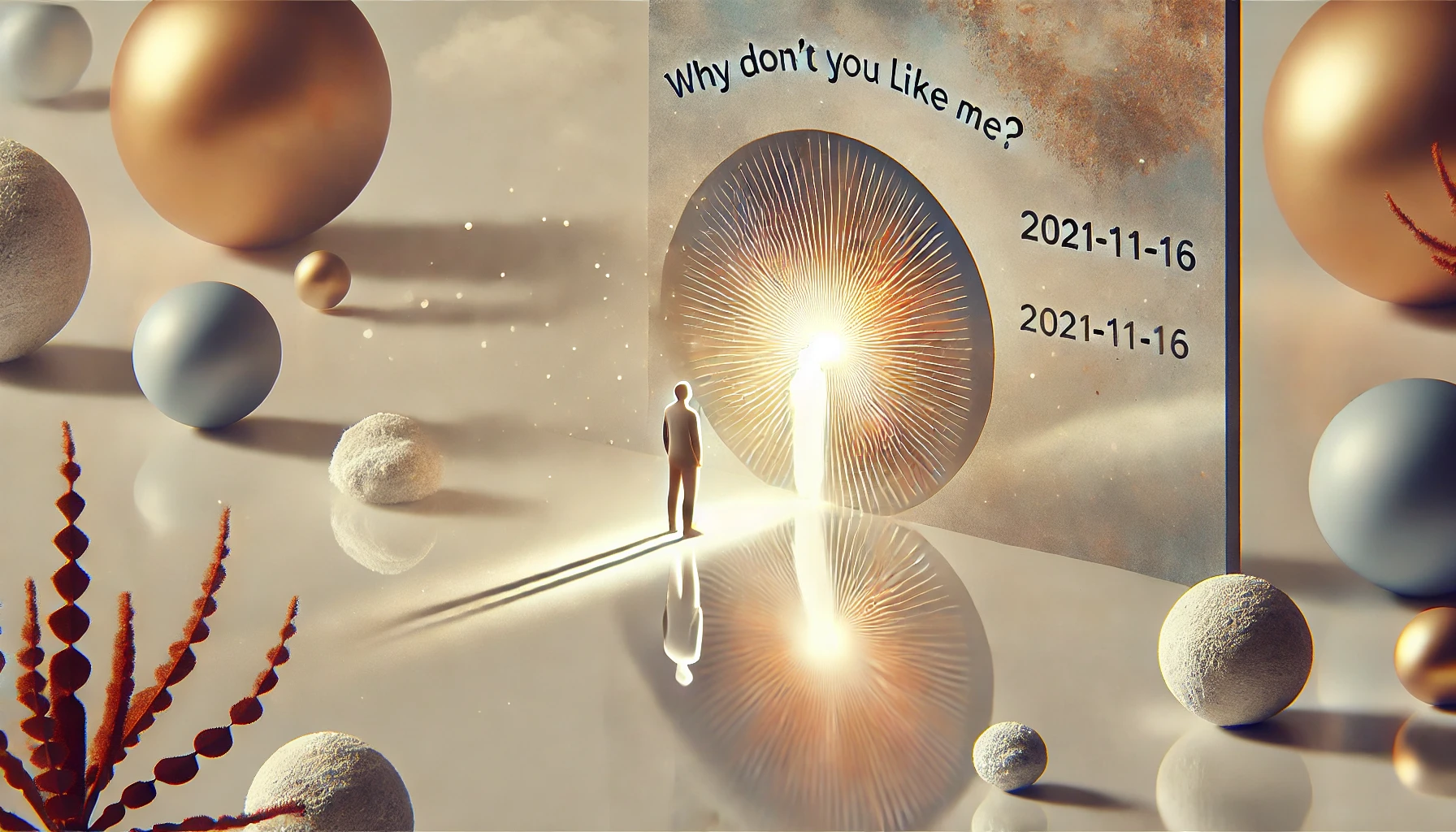

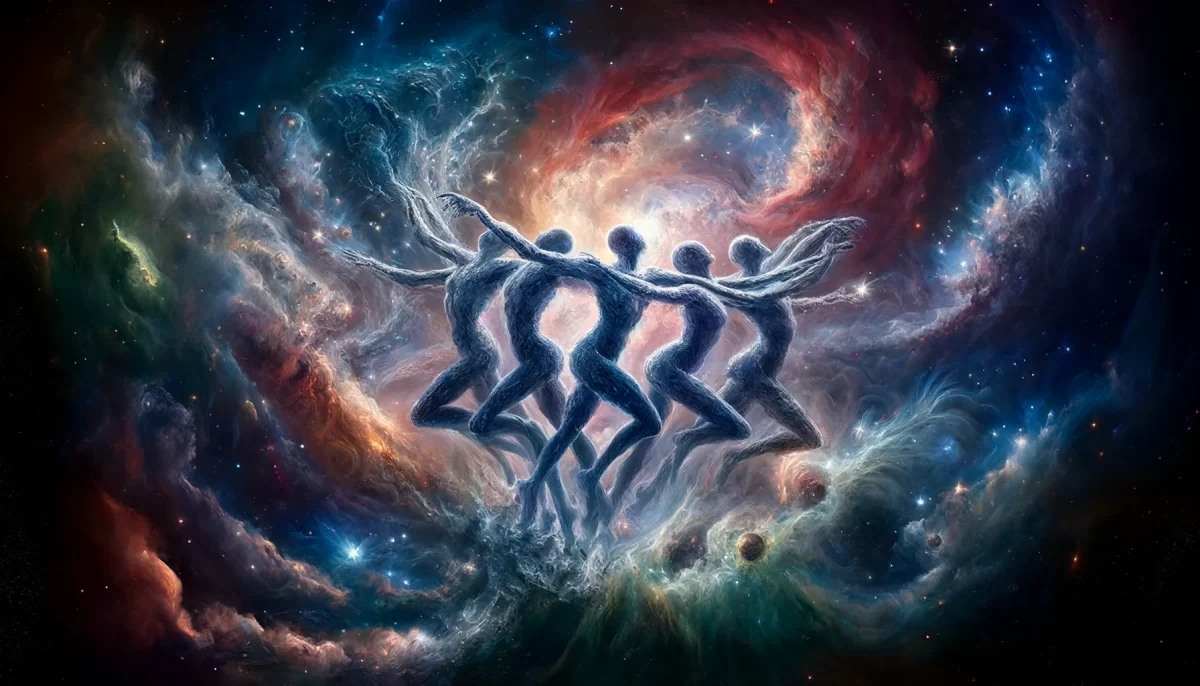


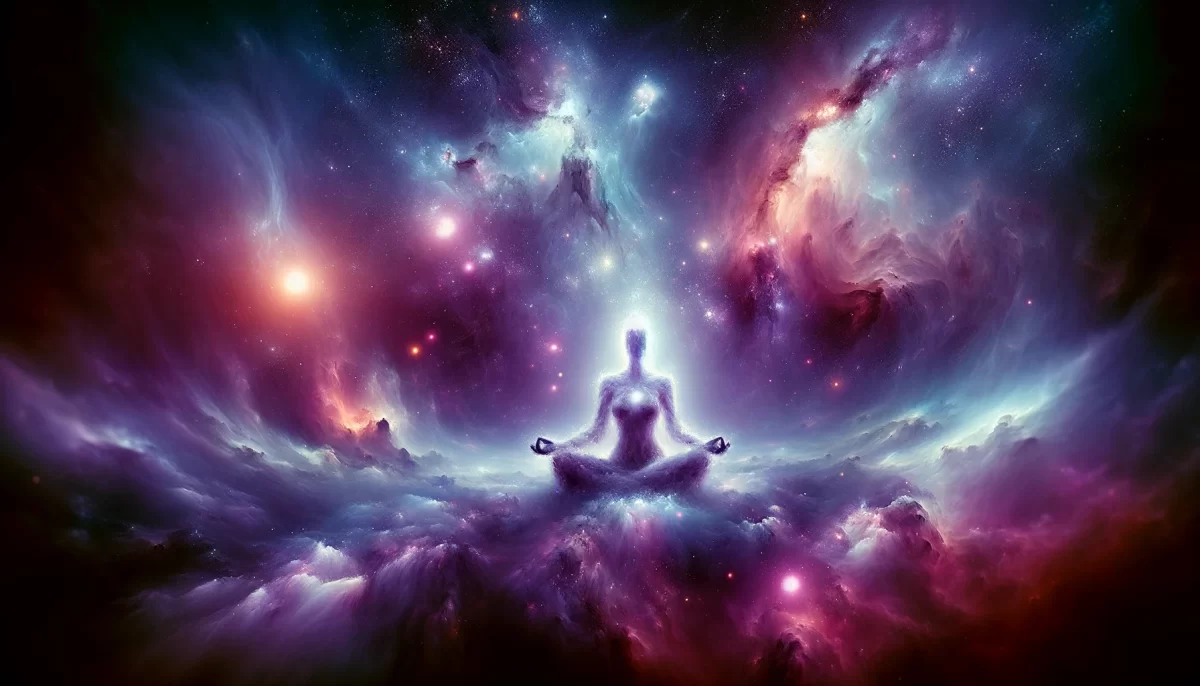

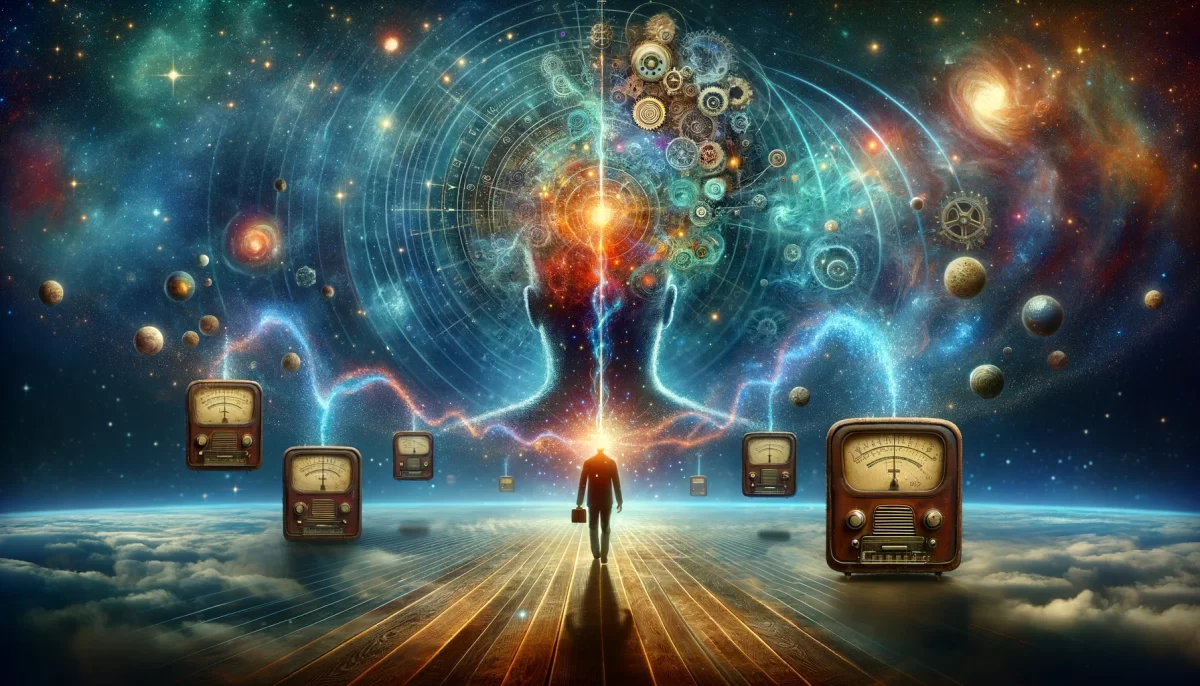



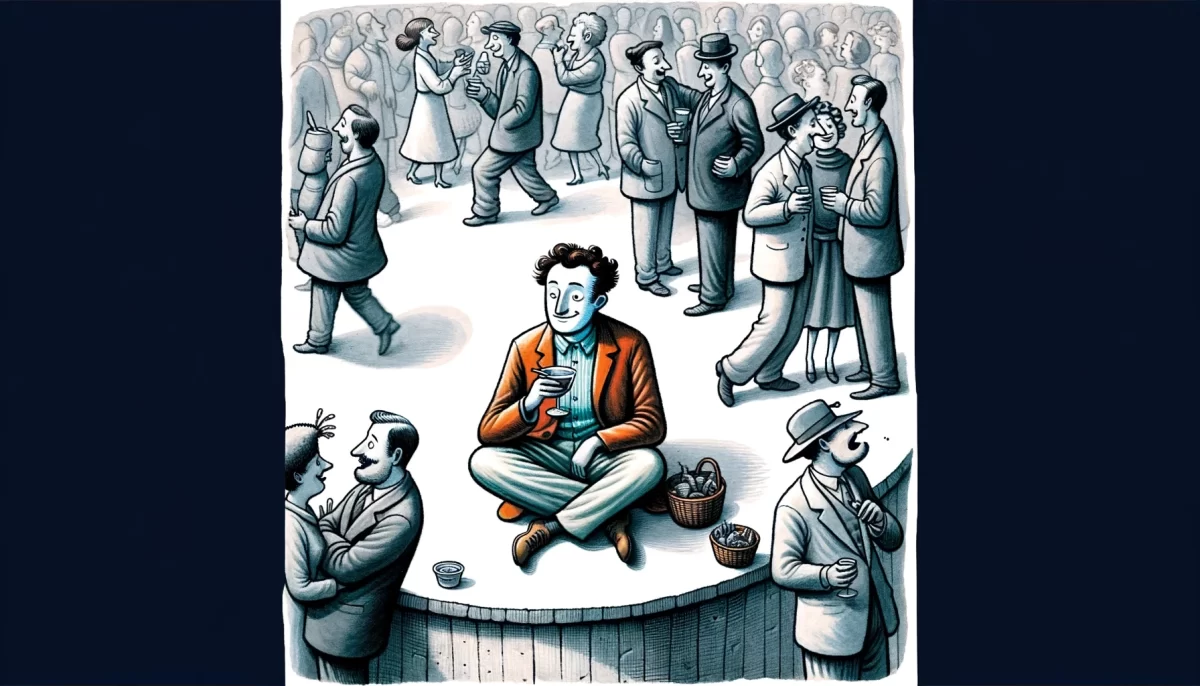






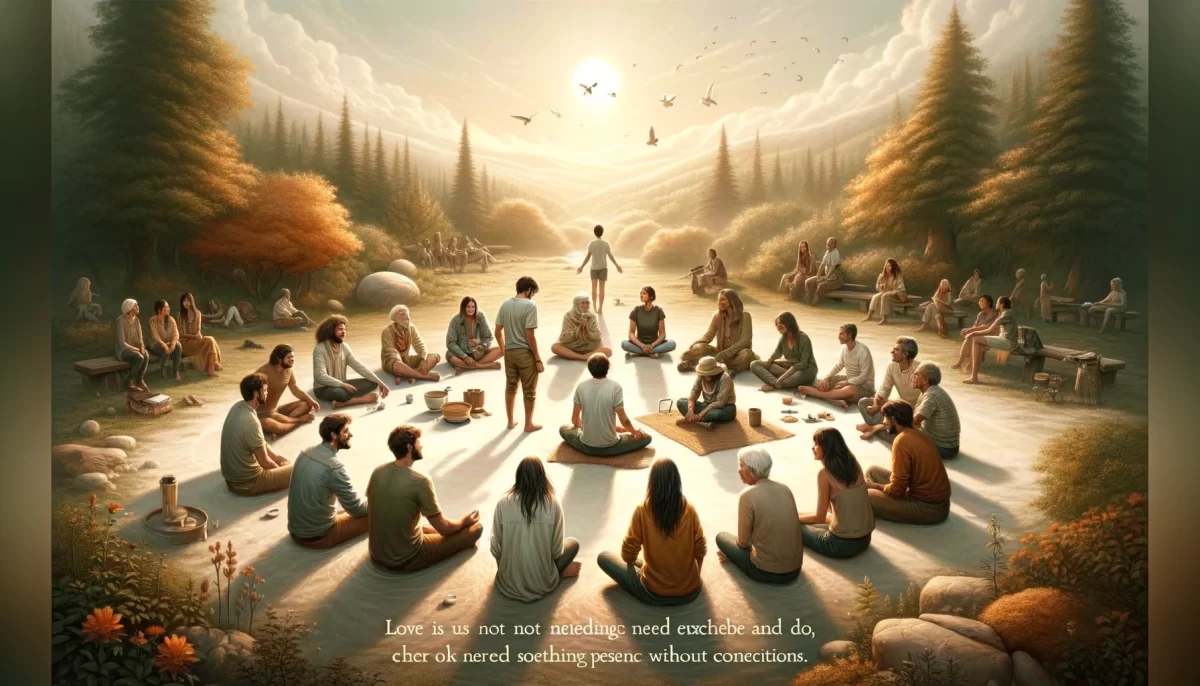
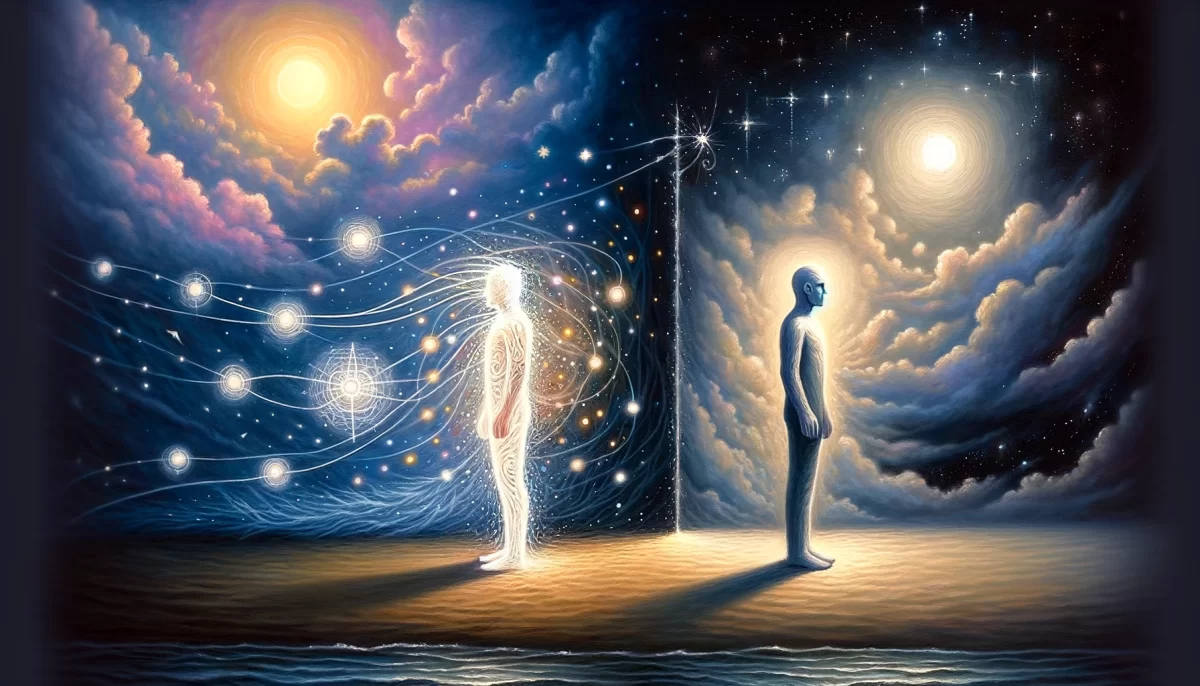






Leave a Reply